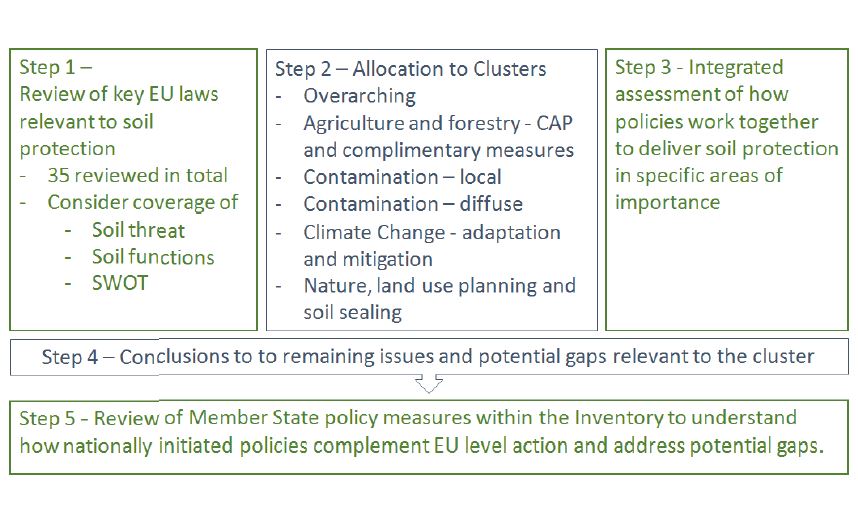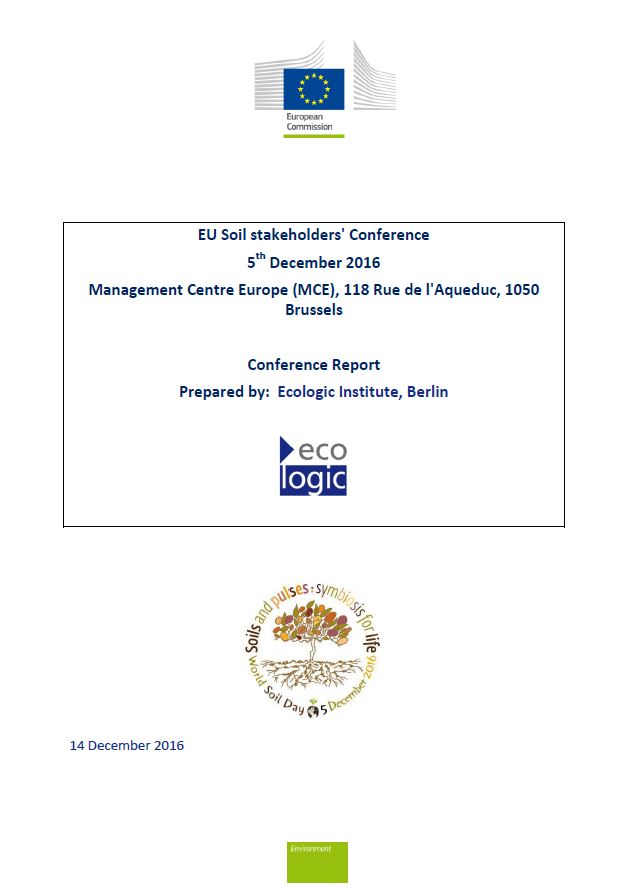Updated Inventory and Assessment of Soil Protection Policy Instruments in EU Member States
- Project
- Duration
-
-
This project, led by Ecologic Institute, aims to take stock of existing soil policy instruments in the EU in order to identify gaps in protection and to support the decision-making process for further policy action. Collaborating closely with experts from 28 EU Member States, the project develops a Wiki-based inventory and an up-to-date assessment of soil policy instruments in the EU.
Soils in the EU are a key natural resource delivering essential ecosystem services. However, soils are affected by a wide range of soil threats including erosion, floods and landslides, loss of soil organic matter or soil sealing. The deterioration of soils results from ongoing pressures on soils, such as urbanisation or agricultural intensification, and also reflects the lack of an overarching and integrated policy framework for soil protection in Europe.
Background
Soils deliver many functions and essential ecosystem services such as water and nutrient cycle regulation, food production, and providing a basis for construction as well as habitat for various species. However, EU soils are threatened by erosion, floods and landslides, loss of soil organic matter and soil biodiversity, contamination, compaction and sealing. Pressures such as increasing urbanisation, land abandonment, and intensification of agricultural production accelerate soil degradation.
The EU Commission proposed a Soil Framework Directive in 2006. This proposal was withdrawn in 2014, largely due to arguments focused on subsidiarity and administrative costs. Thus, while many different policy instruments directly or indirectly address soil threats, there is limited integration of these instruments with respect to soil protection objectives. Moreover, there is very limited information on the coherence and effectiveness of current policies. At Member State level, soil threats are often addressed indirectly by different instruments such as regulation, subsidies, or incentives and advice and across different sectors such as waste, agriculture, forestry, water or industrial pollution. Some soil threats such as soil sealing, compaction and salinisation are not addressed at all or only in non-binding measures.
Main objectives
The project aims to:
- Develop an inventory of existing and upcoming policy instruments, including legislation, regulatory and non-binding instruments, measures and targets in the 28 EU Member States and its regions. This information will be compiled in a collaborative web application.
- Collect information on and assess the effectiveness of soil policy instruments in addressing the soil threats and soil functions in the EU as well as the relevance and coherence of policies. For this, available ex-ante and ex-post impact analyses are used. This cross-policy analysis will also help to identify any gaps in EU policies and national legislation in addressing soil threats and soil functions.
- Foster discussion regarding current and future policy initiatives with experts at Member State and EU level on the policy inventory and assessment results.
A clear understanding of existing policy instruments and gaps in protection will provide a baseline on which to build future policy action on soils in the EU.
Methodology
The project establishes a typology of soil policy instruments at EU level. On this basis, data is collected for an assessment at the national/regional level of the 28 Member States. A policy inventory is created in a Wiki tool with entries for each Member State. Building on this inventory, a gap analysis of key national soil threats and the relevance, coherence and effectiveness of the policies in place to address these threats is conducted. An assessment of the state of soil degradation and trends across the various Member States produces a summary of the policy gaps for Member States, soil threats and soil functions. The results are reviewed and updates from stakeholder consultations are integrated by the end of the project.
Research focus of the Ecologic Institute
Ecologic Institute leads the project and is responsible for developing and implementing the Wiki inventory. Ecologic Institute also conducts Member State assessments for Austria, Bulgaria, Cyprus, France, Germany, Greece, Ireland, Lithuania, Slovenia and Spain.








